Explaining Marketing in Business: Strategies and Types |
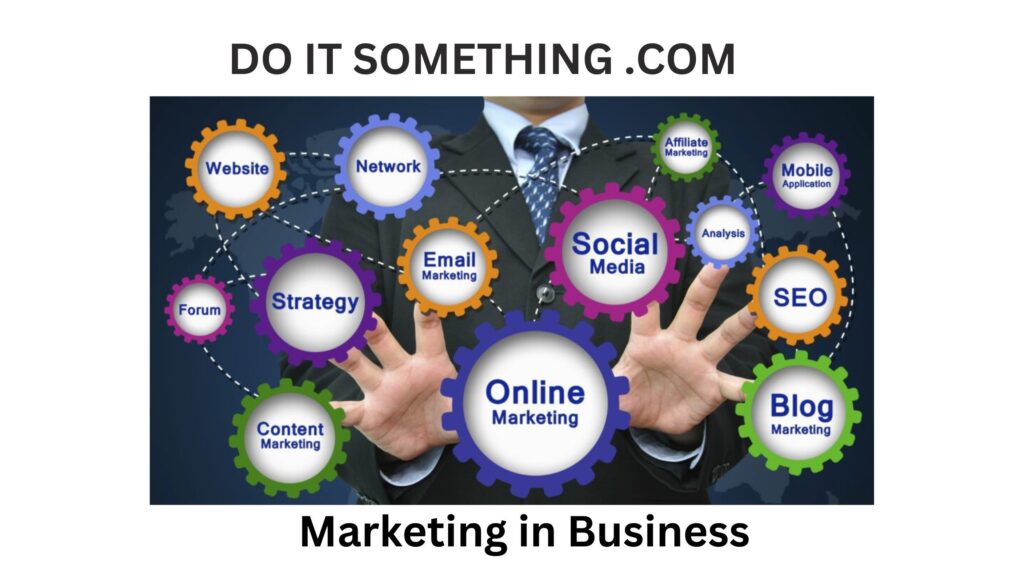
Marketing in Business
What is Marketing in Business?
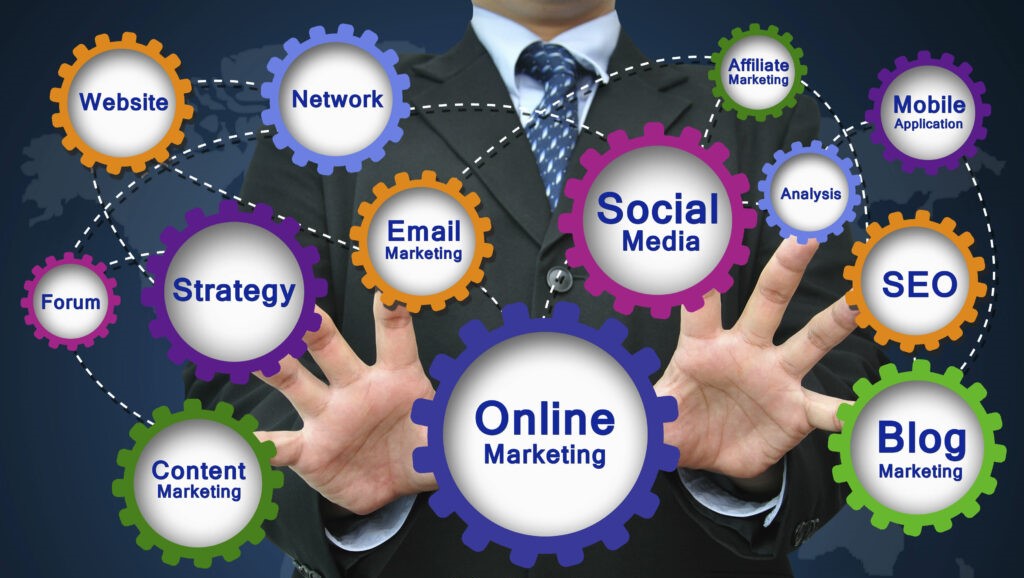
If you are familiar with Marketing in Business you should read this article. Continue reading if you want to learn more about utilizing.
Marketing in business refers to the activities and processes that a company undertakes to promote and sell its products or services to potential customers. It involves identifying customer needs, developing a product or service that meets those needs, determining the price, promoting the product or service through various channels, and distributing it to the target market.
Marketing also involves understanding customer behavior, market trends, and competition, and developing strategies to gain a competitive edge in the market. The ultimate goal of marketing is to create a strong brand identity and establish long-term customer relationships that result in increased sales, revenue, and profitability for the business.
Also, Raed About,Top 5 DC Fast Charger For EV
Marketing Strategies:
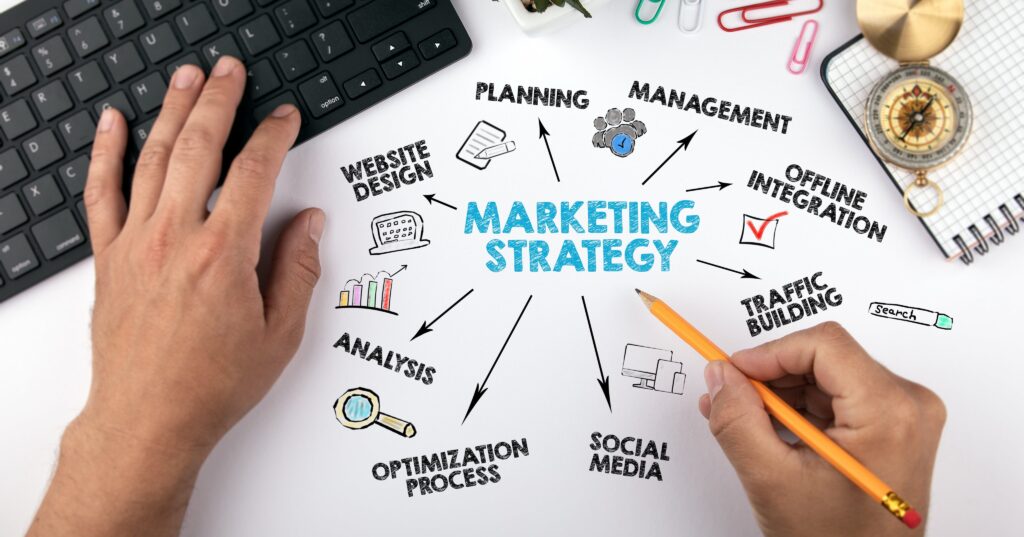
Marketing strategies are the tactics and techniques that businesses use to promote their products or services to their target audience. Some of the key marketing strategies include:
a. Product Positioning: This involves creating a unique identity for a product or service in the market to differentiate it from competitors. Companies can use various methods, such as pricing, packaging, and advertising, to create a distinct brand identity and stand out in the market.
b. Target Audience: Identifying the target audience is crucial for any successful marketing campaign. Companies must understand their customers’ needs, preferences, and buying behavior to develop effective marketing strategies that appeal to their target audience.
c. Branding: Building a strong brand identity is an essential part of marketing. A brand represents the values, personality, and reputation of a company, and it plays a crucial role in attracting and retaining customers. Branding efforts can include logo design, brand messaging, and advertising campaigns.
d. Pricing Strategies: Setting the right price for a product or service is crucial for its success in the market. Companies can use various pricing strategies, such as penetration pricing, skimming pricing, and value-based pricing, to appeal to different customer segments and maximize profits.
e. Promotion Strategies: Promotion involves communicating the value of a product or service to the target audience through advertising, public relations, and other promotional activities. Companies can use various promotion strategies, such as discounts, free samples, and referral programs, to attract and retain customers.
f. Distribution Strategies: Distribution involves getting the product or service to the target audience through various channels, such as direct selling, wholesalers, retailers, and e-commerce platforms. Companies must choose the right distribution strategy based on the target audience, product, and market conditions.
By combining these marketing strategies, companies can create a comprehensive marketing plan that helps them achieve their business objectives and stay ahead of the competition.
Types of Marketing:
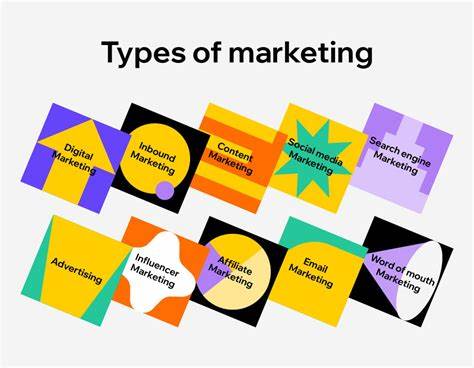
Read
There are several types of marketing strategies that businesses can use to reach their target audience. Here are some of the most common types of marketing:
a. Traditional Marketing: This refers to the traditional forms of marketing, such as print advertisements, television commercials, radio ads, billboards, and direct mail. Traditional marketing can be effective in reaching a broad audience, but it can be expensive and difficult to measure the ROI.
b. Digital Marketing: This involves using digital channels, such as social media, email, search engines, and websites, to promote a product or service. Digital marketing is cost-effective, and measurable, and allows businesses to reach a targeted audience.
c. Content Marketing: This involves creating and sharing valuable and relevant content, such as blog posts, videos, infographics, and social media posts, to attract and retain a target audience. Content marketing can help businesses establish themselves as an industry thought leaders and build brand loyalty.
d. Social Media Marketing: This involves using social media platforms, such as Facebook, Instagram, Twitter, and LinkedIn, to promote a product or service. Social media marketing can be cost-effective and allows businesses to engage with their customers in real time.
e. Influencer Marketing: This involves partnering with influencers, such as bloggers, celebrities, or social media personalities, to promote a product or service to their followers. Influencer marketing can be effective in reaching a targeted audience and building brand awareness.
f. Email Marketing: This involves using email to promote a product or service to a target audience. Email marketing can be cost-effective and allows businesses to reach a targeted audience with personalized messages.
Importance of Marketing in Business
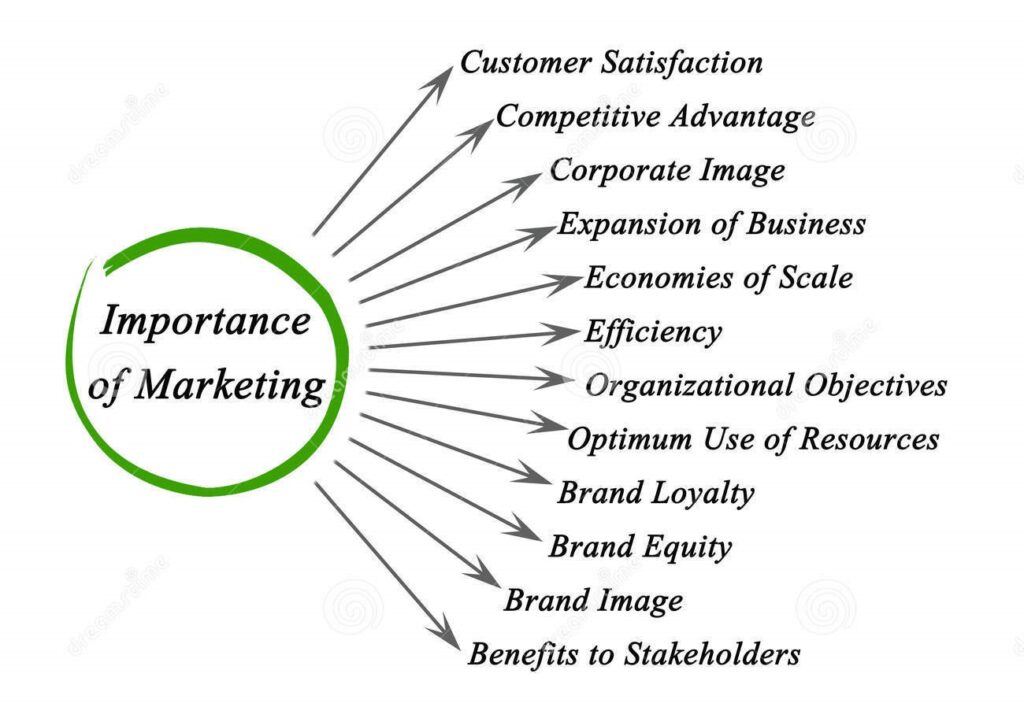
Marketing plays a crucial role in the success of a business. Here are some reasons why marketing is important:
- Helps businesses reach their target audience: Effective marketing helps businesses identify and reach their target audience. By understanding their customers’ needs, preferences, and buying behavior, businesses can develop marketing strategies that appeal to their target audience and drive sales.
- Builds brand awareness: Marketing helps businesses establish their brand identity and build brand awareness. By creating a strong brand identity and promoting it through various channels, businesses can differentiate themselves from their competitors and attract more customers.
- Increases sales and revenue: Marketing efforts, such as advertising, promotions, and sales, can help businesses drive sales and increase revenue. By reaching out to their target audience and convincing them to buy their products or services, businesses can increase their bottom line.
- Builds customer loyalty: Effective marketing can help businesses build customer loyalty by establishing trust, providing value, and creating a positive customer experience. By keeping customers satisfied and engaged, businesses can increase customer retention and repeat business.
- Keeps businesses competitive: In today’s competitive market, businesses must continually evolve and innovate to stay ahead of the competition. Marketing helps businesses keep up with changing trends, customer preferences, and market conditions, and adapt their strategies accordingly.
In summary, marketing is crucial for the success of a business as it helps businesses reach their target audience, build brand awareness, increase sales and revenue, build customer loyalty, and stay competitive.
Benefits of Marketing

Marketing offers several benefits to businesses. Here are some of the key benefits of marketing:
- Increased sales and revenue: Effective marketing campaigns can help businesses attract new customers and retain existing ones, leading to increased sales and revenue.
- Improved brand awareness: Marketing efforts, such as advertising, promotions, and public relations, can help businesses establish their brand identity and build brand awareness among their target audience.
- Competitive advantage: Marketing can help businesses differentiate themselves from their competitors by highlighting their unique selling propositions, such as product quality, customer service, or innovation.
- Better customer relationships: By engaging with their customers through marketing, businesses can build stronger relationships and improve customer loyalty.
- Targeted advertising: Through targeted advertising, businesses can reach their ideal customers with personalized messages, increasing the likelihood of conversions.
- Cost-effective: With digital marketing channels such as social media, email, and content marketing, businesses can reach a large audience at a low cost compared to traditional marketing channels.
- Measurable: With modern marketing tools and technologies, businesses can measure the effectiveness of their marketing campaigns and make data-driven decisions to improve their results.
In summary, marketing offers several benefits to businesses, including increased sales and revenue, improved brand awareness, competitive advantage, better customer relationships, targeted advertising, cost-effectiveness, and measurability.
Marketer-Related Constraints

Marketers may face several constraints or challenges that can impact their ability to effectively execute marketing strategies. Here are some common marketer-related constraints:
- Budget limitations: Marketers may have limited budgets to work with, which can impact their ability to reach their target audience, invest in new marketing technologies, or create high-quality content.
- Lack of expertise: Marketing requires a diverse skill set, including data analysis, content creation, and creative design. Marketers may face constraints if they lack the necessary skills or experience to effectively execute their strategies.
- Time constraints: Marketers may face tight deadlines or a limited amount of time to execute their strategies. This can impact their ability to conduct thorough market research, develop comprehensive campaigns, or respond quickly to market changes.
- Technology limitations: Marketing technologies and tools are constantly evolving, and marketers may face challenges if they lack access to the latest marketing automation software, analytics tools, or other marketing technologies.
- Regulatory constraints: Marketers must comply with a variety of regulations, such as data privacy laws and advertising standards. Failure to comply can result in legal or reputational issues.
- Organizational constraints: Marketers may face constraints related to their organization’s culture, structure, or resources. For example, a lack of support from senior management or a rigid organizational structure can limit a marketer’s ability to implement innovative strategies.
In summary, marketers may face several constraints that can impact their ability to execute effective marketing strategies, including budget limitations, lack of expertise, time constraints, technology limitations, regulatory constraints, and organizational constraints. Marketers need to understand and address these constraints to optimize their marketing efforts.
What Sorts of Marketing Are There?
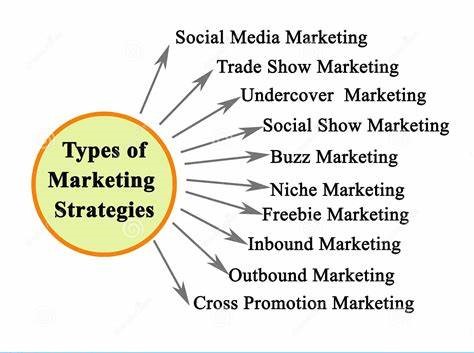
There are various types of marketing strategies that businesses can use to promote their products or services to their target audience. Here are some of the most common types of marketing:
Staps:
- Digital Marketing: Digital marketing involves using digital channels such as social media, email, search engines, and mobile apps to promote a brand, product, or service. Digital marketing can be highly targeted, cost-effective, and measurable.
- Content Marketing: Content marketing involves creating and distributing high-quality content such as blog posts, videos, infographics, and whitepapers to attract and engage a target audience. The goal of content marketing is to provide value to the audience, establish the brand as a thought leader, and build trust and loyalty.
- Social Media Marketing: Social media marketing involves using social media platforms such as Facebook, Instagram, LinkedIn, and Twitter to promote a brand or product, engage with customers, and build brand awareness.
- Influencer Marketing: Influencer marketing involves partnering with social media influencers who have a large following to promote a brand or product. Influencer marketing can be highly effective in reaching a specific target audience and building credibility.
- Email Marketing: Email marketing involves sending targeted emails to a list of subscribers to promote a brand or product, nurture leads, and build relationships with customers. Email marketing can be highly effective in driving sales and building customer loyalty.
- Event Marketing: Event marketing involves organizing or sponsoring events such as trade shows, conferences, or product launches to promote a brand or product, generate leads, and build relationships with customers.
- Direct Marketing: Direct marketing involves sending targeted marketing messages directly to customers or potential customers through channels such as mail, email, or phone. Direct marketing can be highly targeted and cost-effective, but may also be seen as intrusive by some customers.
In summary, there are various types of marketing strategies that businesses can use to reach their target audience, build brand awareness, and drive sales. The most effective marketing strategy will depend on the business’s goals, target audience, and budget.
Also Read About
Frequently Asked Questions :
The answer to that question is “all the time”. Marketing is not something you can turn on and off. Marketing also needs to be viewed as an investment, not an expense. Turning on marketing only when business gets slow puts you in a vicious cycle.
To get the answers to your digital marketing questions, you’re going to need to go to the source: your customers. By gathering human insight, you can find out what’s working so you create great experiences across all your channels. Want to learn more?
Marketing questions allow businesses to develop effective marketing strategies and goals and ensure high-quality performance when completing projects. Here’s a list of 10 basic marketing questions you can ask yourself when conducting a marketing campaign: 1. Who is my target market?
Conclusion
This was our guide on – Marketing in Business
marketing is a critical component of any successful business strategy. It involves understanding the needs and wants of customers, developing a value proposition, and communicating that value to the target audience through various marketing channels.
Marketers use a range of strategies and tactics to reach their target audience, including digital marketing, content marketing, social media marketing, influencer marketing, email marketing, event marketing, and direct marketing.
Effective marketing requires a deep understanding of the target audience, a well-defined brand identity, and a clear message that resonates with the target audience. It also requires marketers to stay up-to-date with the latest marketing trends and technologies and to adapt their strategies as needed to stay ahead of the competition.
While marketers may face various constraints and challenges, such as budget limitations, lack of expertise, and regulatory constraints, they can overcome these obstacles by leveraging their creativity, resourcefulness, and innovative thinking. By focusing on the needs and wants of their customers and developing effective marketing strategies, businesses can build brand awareness, drive sales, and achieve long-term success.
This article should have Marketing in Business Please let us know in the comments area if you have any questions.







